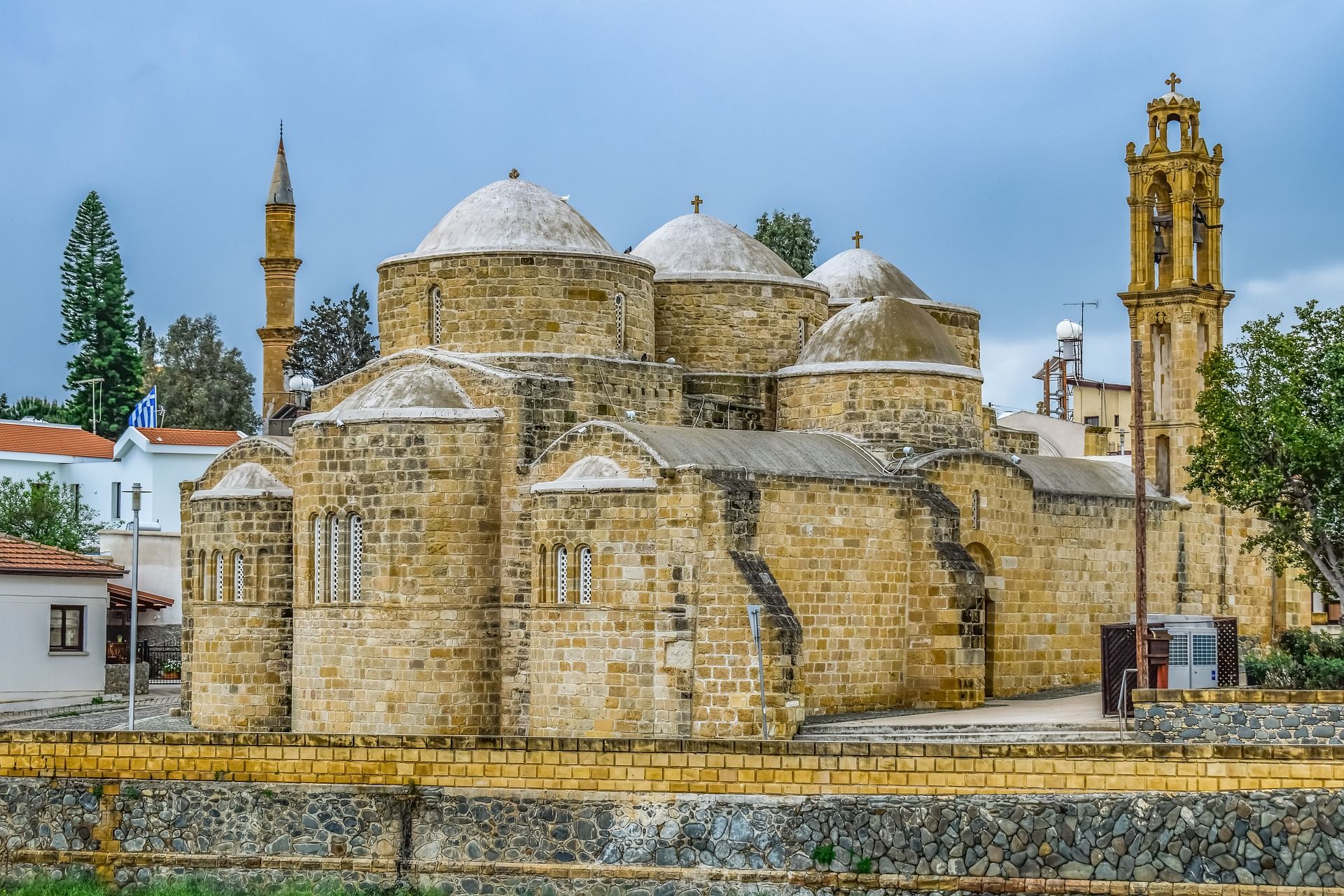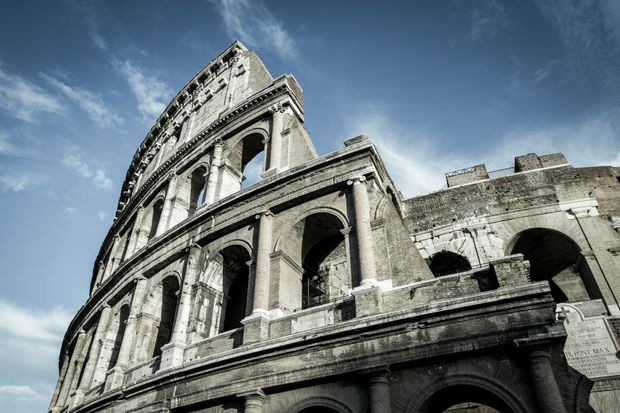What are the longest-lasting empires, governments, or nations in world history? Good question! But not all that easy to answer.
For starters, how do you even measure the age of an empire? It's not like they have an official "starting date". Also, does it count if a nation was occupied by a foreign power for a portion of its lifetime? What if said nation joins one or several other nations to form a new nation, as was the case with the United Kingdom? What about peoples or cultures that have never established formal governments? And how does the United States' history compare to other longest-lasting nations in history?
Well, to answer ALL of these questions (and for your entertainment), the history buffs at Brainscape poured over the textbooks and wrote this list of the oldest nations in world history. Like I hinted at, it's not an exact science but it should be enough to satisfy your curiosity, so let's go!
[To master the fundamentals of history more efficiently, check out our many collections of expert-curated and user-generated history flashcards in Brainscape.]
The Pandyan Empire (1850 years)
This society of Southern India is considered the longest-lasting empire in history. Ever. It dominated trade and agriculture, not to mention having numerous fisheries and rich pearl (oyster) beds, and so was extremely wealthy. A series of kings ruled the Pandyan Empire during this period, which lasted from about 500 BC to 1350 AD.
What happened to the Pandyan Empire? They faded into obscurity upon the rise of the Kalabhra dynasty in south India. Constant conflict with the kingdoms of Cholas and Pallavas saw to its decline and demise by the mid-14th Century.
[Psssst! Studying for AP History? Here's how to do that smarter and more efficiently!]
Byzantine Empire (1123 years)

Also known as the Eastern Roman Empire, the Byzantine culture based in Constantinople (now Istanbul) dominated much of Europe and the Levant between 330 and 1204 AD. By the 13th century, the empire was in decline, and although it was re-established in 1261, it never again became a major power.
What happened to the Byzantine Empire? The already declining empire came to an end in 1453 when the Ottoman Turks breached the city of Constantinople's ancient land wall after besieging the city for 55 days. This saw the collapse of Christian Europe's influence in the region, allowing for uninterrupted Ottoman expansion into eastern Europe.
Silla Kingdom (992 years)
The Silla or Shilla was a Korean kingdom located in the southern and central parts of the Korean Peninsula. Originally established in 57 BC, the Silla was officially a Buddhist nation; although this did not discourage its frequent wars with the other kingdoms it jostled for territory with. By 527, the Silla Kingdom covered much of the Korean peninsula, making it one of the oldest nations in world history.
What happened to the Silla kingdom? The final 150 years of the Silla kingdom were marked by nearly constant upheaval and civil war as the ruling king slowly lost all power and significance, being replaced instead by wealthy aristocratic families who rose to dominance outside the capital and royal court.
Interesting read: '13 Wars in history that have shaped the world'
Abyssinian (Ethiopian) Empire (665 years)
One of the few African nations to hold out against European colonialism, the Ethiopian Empire (also known as Abyssinia) lasted from approximately 1270 (beginning of Solomonid Dynasty) until 1935 when Italian forces invaded their territory. Using chemical weapons Italy finally conquered Abyssinia at the beginning of 1936, forcing the country's Emperor, Haile Selassie, into exile. Then, in 1974, the monarchy was overthrown in a coup d'etat.
What happened to the Ethiopian Empire? The country of Ethiopia stands proudly to this day, having declared independence from colonial rule on August 21st, 1995.
The Ottoman Empire (600 years)
Created in the 1300s by Turkish tribes in Anatolia, the Ottoman Empire grew to be one of the most powerful states in the globe during the 15th and 16th centuries, swelling to encompass most of southeastern Europe, including present-day Hungary, Greece, the Balkan region, Iraq, Israel, Syria, and North Africa, and more. The name "Ottoman" is named after Osman I (Arabic: ʿUthmān), a nomadic Turkish chief who founded the empire.
What happened to the Ottoman Empire? For centuries, the Ottoman Empire thrived but then began a long and slow descent as it struggled to maintain a bloated bureaucracy and centralized administrative structure. The Empire's defeat in World War I was the final straw and it was disintegrated and partitioned into the Turkish Republic and various other states in the Middle East and southeastern Europe.
The Roman Empire (499 years)
The classic Roman Empire that we know the most about—the society that was based on Rome and had Julius Caesar as one of its first rulers—lasted for nearly 500 years. The ancient Romans were well-known for their military prowess and social and political institutions. They also conquered vast tracts of land in Europe and northern Africa, built roads and aqueducts, and spread the Latin language far and wide. Kind of a big deal.
What happened to the Roman Empire? At the end of its life, in the 5th Century, Rome began to collapse under the weight of invasions of its neighboring empires who sought to reclaim much of the land stolen by them. Too vast and bloated to do much about it, the Roman Empire eventually broke up.
Check out: '13 U.S. history facts about the 13 original colonies'
San Marino (415+ years)
Perhaps the oldest government still in operation today, more or less unchanged, is the Italian micro-state of San Marino. With a land area of less than 30 square miles, the nation has been able to maintain its boundaries and integrity of government for more than 400 years.
Aboriginal Australian Cultures (50,000 years)

This is a special case since aboriginal Australians largely roamed free in tribes and never had cause to band together to form one official overarching government. But against the relentless disenfranchising and oppression by western powers, Aboriginal culture has remained intact—with a largely continuous religious and political structure—for more than 50,000 years (and possibly 65,000 or more).
Of course, it must be said that, as with so many other indigenous cultures, the Aboriginal people suffered monstrously at the hands of Australia's foreign settlers and so are fractionally as widespread and vital a nation as they once were.
United States of America (246 years, and counting)
The founding fathers sealed the declaration on 4 July 1776, making the United States of America 246 years old as of 2022. That might seem like a long time—11 or 12 generations—but it pales in comparison with the history of the original inhabitants of this continent whose stories predate our own by centuries, if not thousands of years.
Where's the United States today? Still around the last time I checked. MURICA!
